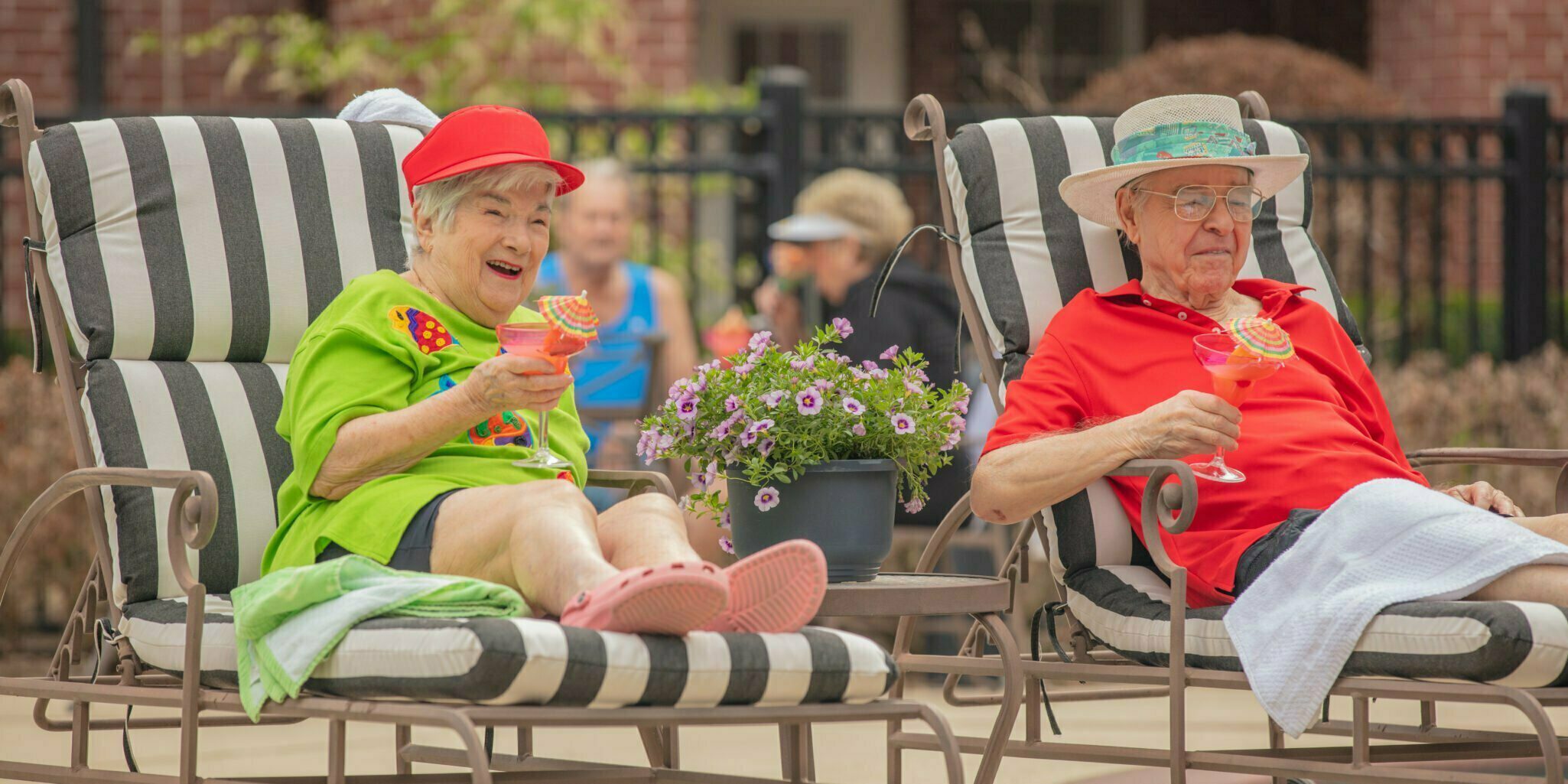
The Importance of ADLs & IADLs For Your Loved One
As we age, it’s common for daily tasks to become more cumbersome. While this can feel scary for our aging family members, we can lend them support and elevate their independence by measuring priority Activities of Daily Living (ADLs) and Instrumental Activities of Daily Living (IADLs).
How?
With these key metrics, you’ll have a better sense of whether your aging parent needs to move to assisted living, as well as the type of support they’ll require. With the right support, your family member has more opportunities to thrive and make their mark in this chapter of life. Most importantly, you’ll be able to craft the perfect care plan so your family member can keep up their active, sophisticated lifestyle.
What Are ADLs?
ADLs (Activities of Daily Living) involve self-care tasks that we complete every day to stay healthy, clean, and safe. These tasks may become challenging for aging adults due to health issues or a natural decline in dexterity and balance.
Typical assisted living activities include:
● Bathing and showering
● Continence
● Dressing
● Mobility
● Transferring
● Feeding
● Toileting
Some older adults may only need a little help with these tasks while others may require full support.. Every ADL is evaluated on a sliding scale to understand each individual’s true needs.
What Are Instrumental Activities of Daily Living?
In addition, IADLs (Instrumental Activities of Daily Living) are essential for achieving a comforting and fulfilling lifestyle. IADLs involve all the more complex organization skills required to live independently, such as:
● Cleaning and housekeeping
● Laundry
● Managing money
● Managing medications
● Cooking and preparing meals
● Shopping
● Transportation
● Using communication devices
IADLs also tend to fall on a sliding scale of ability. For example, while some older adults may struggle to cook meals or shop for ingredients, they may be able to prepare themselves a cup of coffee or a snack.
The Significance of Tracking ADLs & IADLs
Tracking ADLs and IADLs is an important step to ensure your family member has sufficient support in their day-to-day tasks. Older adults can often be reluctant to ask for help because they’re embarrassed or afraid of losing their independence.
This means that observing ADLs and IADLs at home is essential for getting insight into your family member’s needs and creating a customized care plan. Ultimately, this can help you:
● Notice signs of deterioration
● Get necessary medical evaluations to identify underlying causes
● Determine the right level of support (personalized daily assistance, physical therapy, housekeeping services, etc.)
● Remove potential hazards and prevent accidents
In many ways, ADLs and IADLs can gauge your family member’s abilities and identify any gaps that may still exist in their assisted living care plan. From there, together, we can enhance their daily experience with compassionate support.
Signs That It’s Time to Assess ADLs & IADLs
Your family member deserves the very best. It can be difficult to see a parent struggling, especially when declining ability interferes with their passions and personality.
You should start tracking and taking notes of ADLs if you notice the signs below. After assessing, you can take action to fill any gaps in your parent’s care.
● Changes in hygiene: If you notice your parent isn’t showering regularly or is dressing in the same clothes, it’s likely because personal hygiene tasks have become a burden.
● Accidents and falls: Recent falls or hospitalizations may be a sign of declining motor skills or underlying health conditions that could impact daily living tasks.
● Poor judgment: Changes in your parent’s judgment, including forgetting things, getting lost or losing awareness may affect their ability to manage self-care.
● Loss of logistics: Perhaps your parent was once on top of bills and grocery shopping, but these logistical tasks have fallen to the wayside. Unpaid bills are a key indicator that something more is going on.
If you notice any of these signs, it’s a good idea to get your family member assessed. By knowing your parent’s limitations, you can find ways to support them and ensure they live every day to the fullest.
How to Get Help With ADLs For Your Loved One
Completing an assessment is the first step to getting help with ADLs and IADLs. You can start this process by tracking ADLs at home and self-reporting your parent’s current ability level. Often, families have a key insider’s look into how their family member interacts on a typical day, which is beneficial for accurately gauging their needs.
If you don’t currently live close to your parent and cannot observe them yourself, you can opt to get a professional evaluation. Perhaps you’ve received a few phone calls from your family member about minor falls at home and you’re worried they’re not fully supported.
In this case, you can get in touch with a geriatrician, nurse or our specialists at The Buckingham in order to get a complete assessment of your parent’s abilities. Doing so can help identify underlying medical problems and pinpoint potential solutions for managing your family member’s health.
Whether you self-report or get a professional assessment, you’ll be empowered to make direct updates to your parent’s assisted living care plan, including medications, physical therapy, aid devices (for hearing, vision or walking), etc. With these tweaks, you can boost your family member’s care for maximum independence as they age.
Your Loved One Can Thrive at The Buckingham
After assessing ADLs and IADLs, some families may decide that it’s time for their family member to move to a 5-star senior living community like The Buckingham. With 24/7 access to a licensed nurse and professional staff with experience in handling ADLs and a top assisted living community that can support your aging parent as their needs evolve over time, The Buckingham is a trusted senior living community that is respected throughout the Houston area.
At The Buckingham assisted living community, we elevate every resident’s experience and masterfully plan care so that your family member can thrive. By assessing ADLs and IADLs, we ensure that your parent receives the compassion-driven support they require, while also enjoying a newfound sense of independence. Overall, we offer a suite of services to craft luxury community living for aging adults of all abilities.
Reach out to our Houston assisted living community and learn more how we offer innovative ADL and IADL support to our residents. Contact us online or give us a call at 713-979-3090 today.

